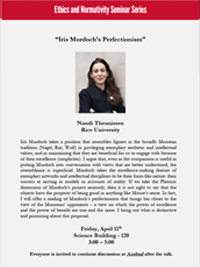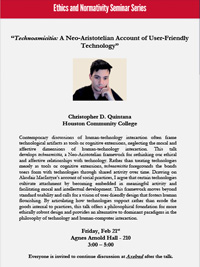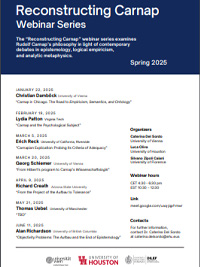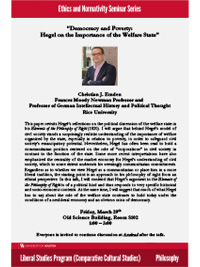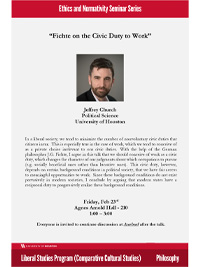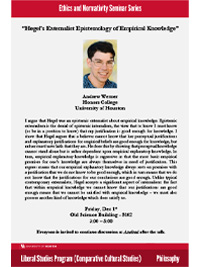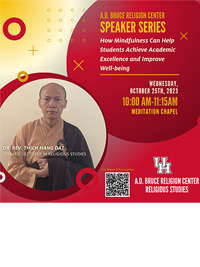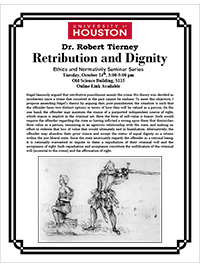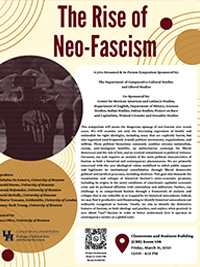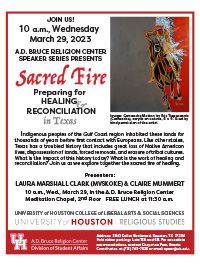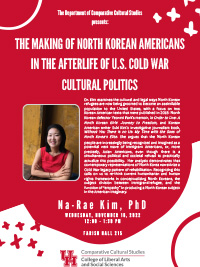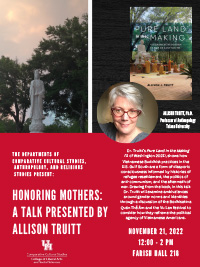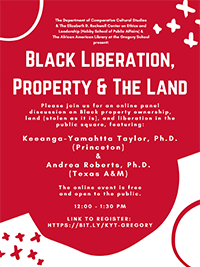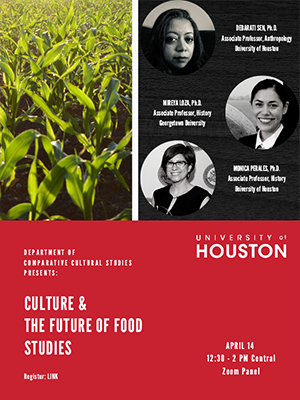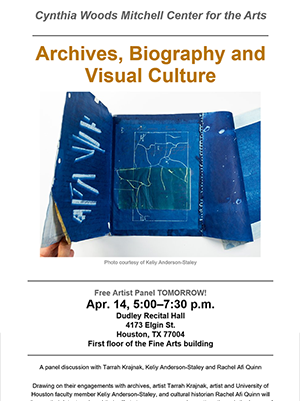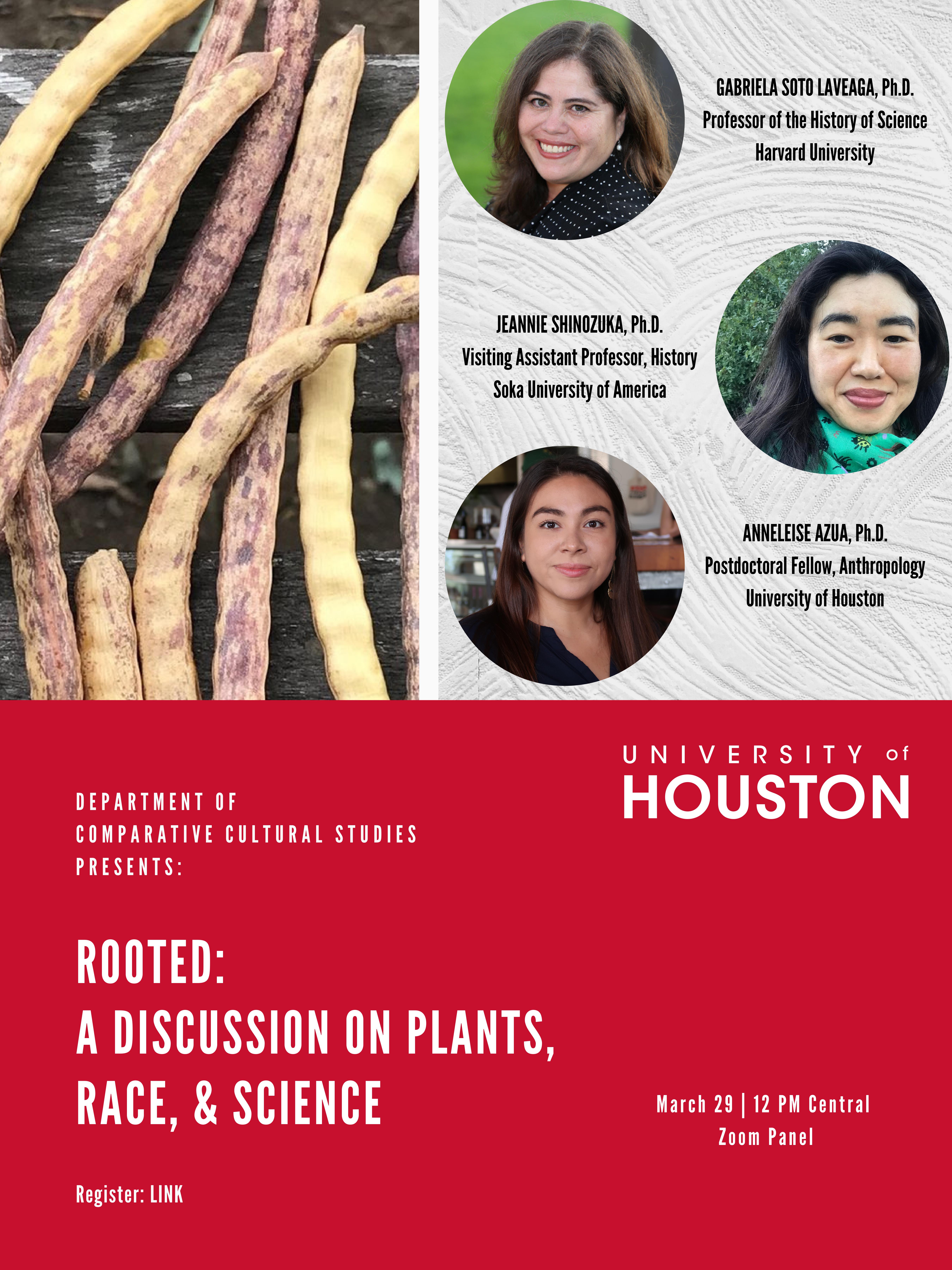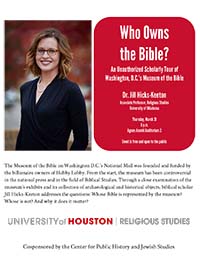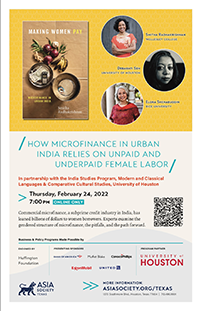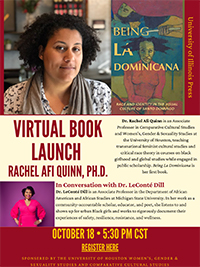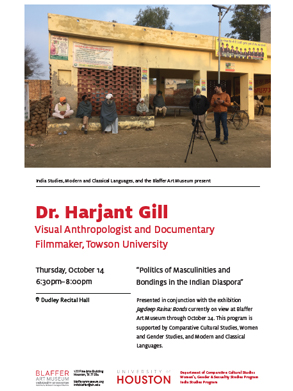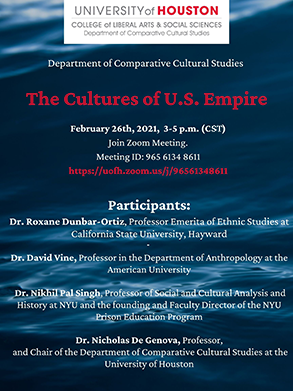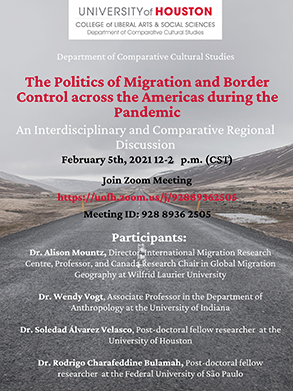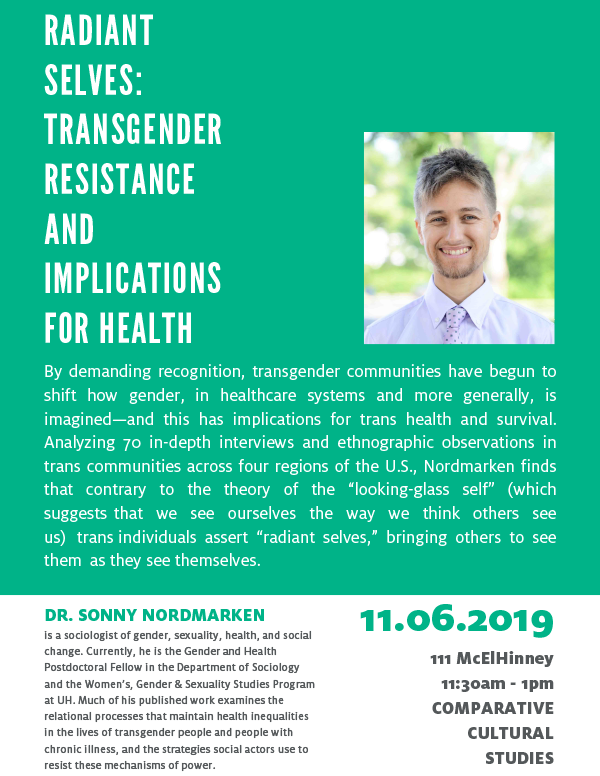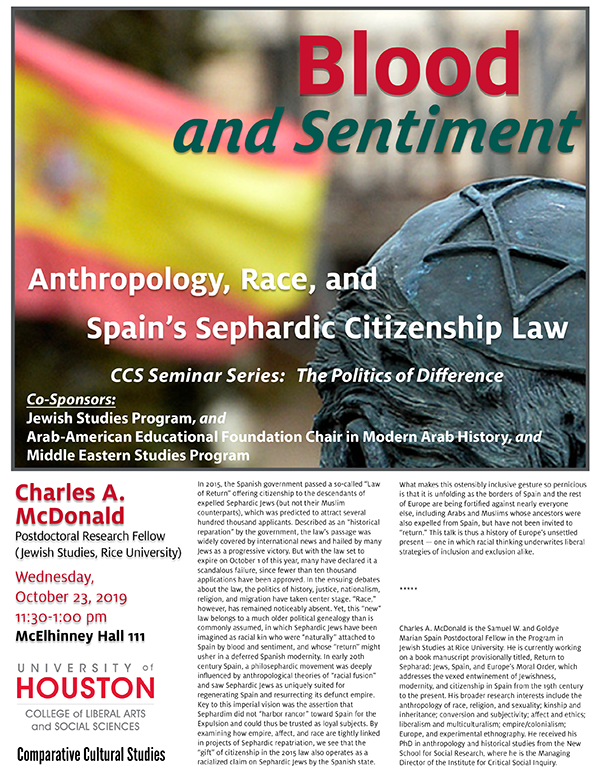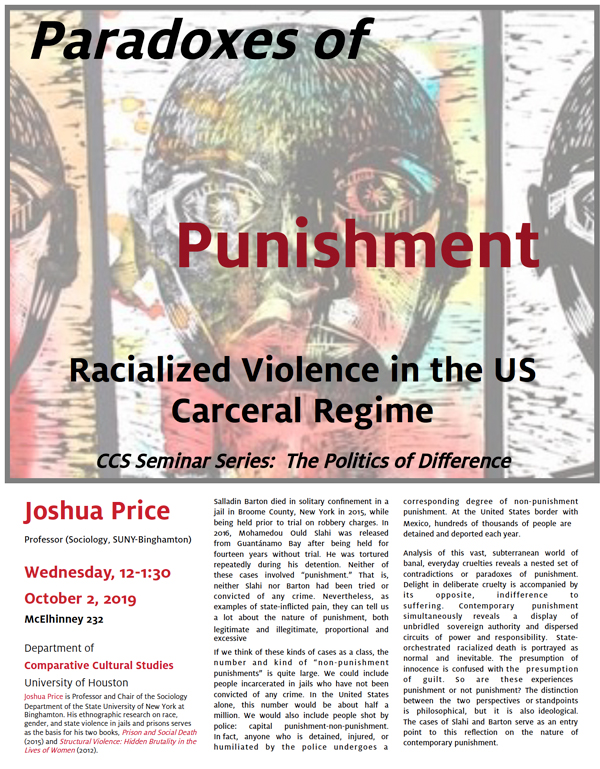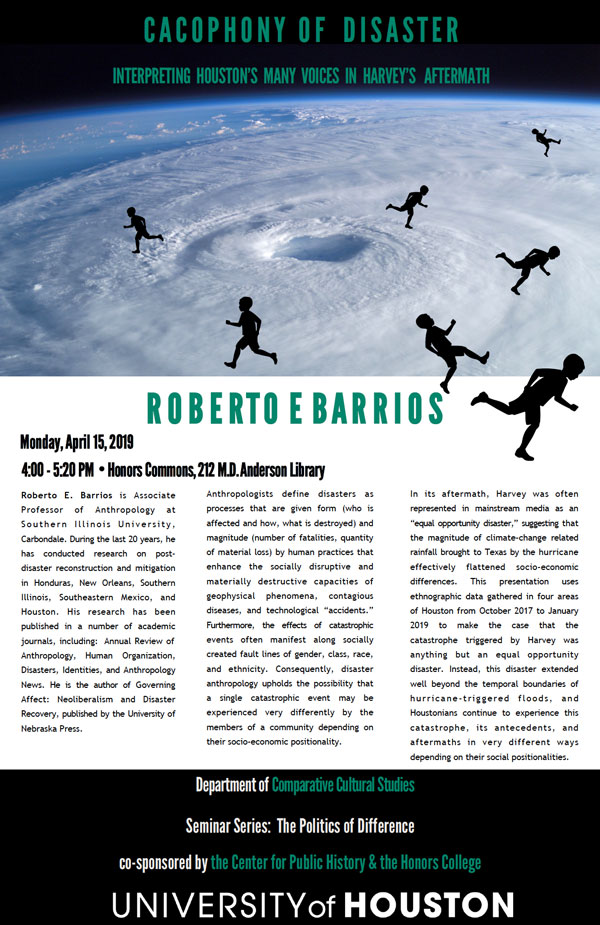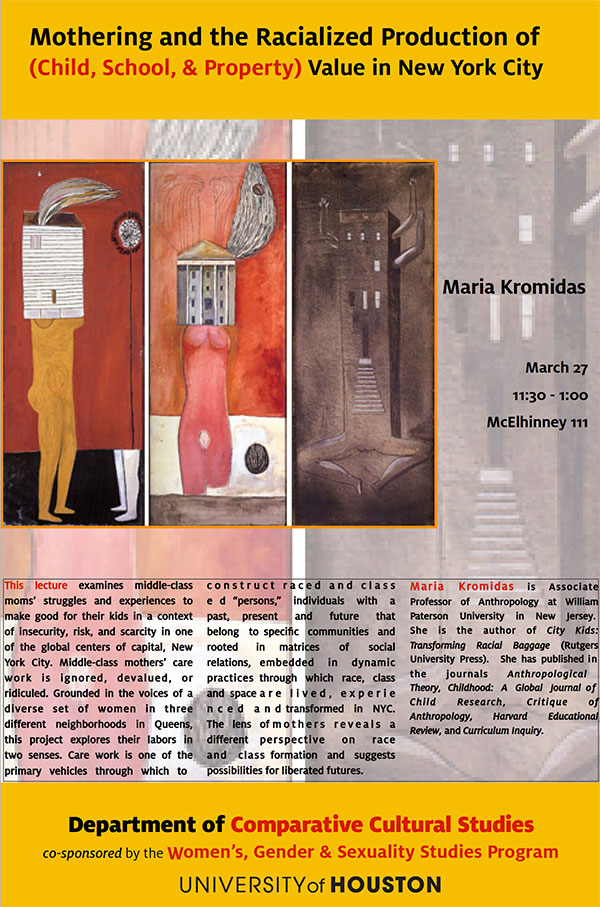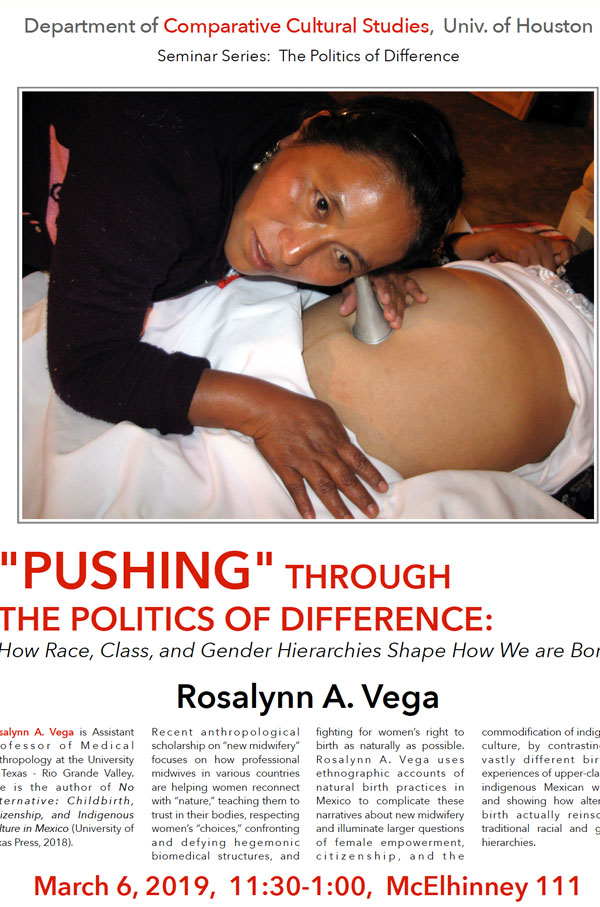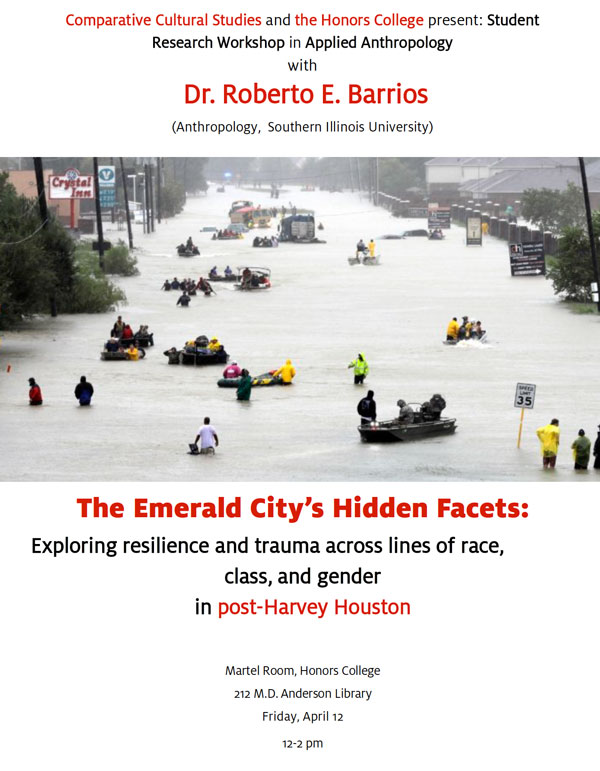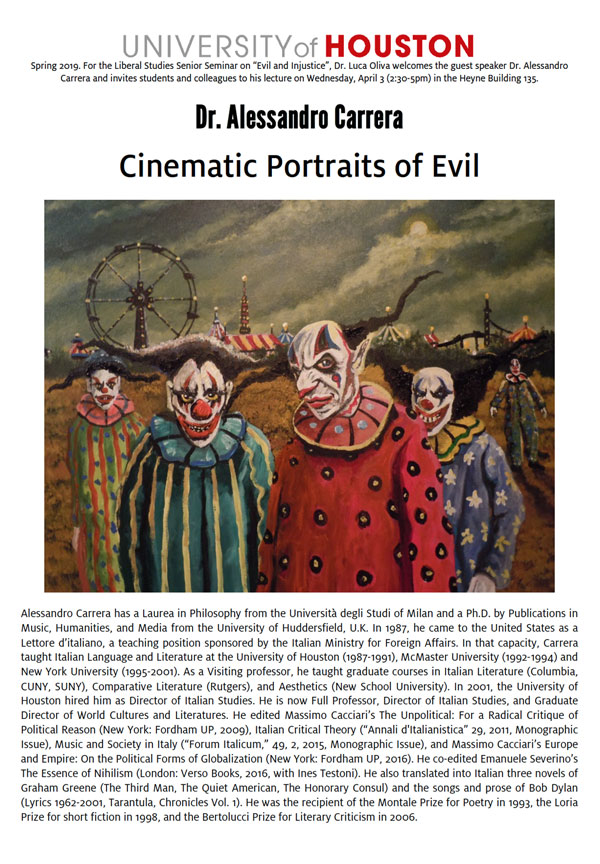Events
2025
Friday, April 11th, Science Building - 120, 3:00 – 5:00 pm
“Iris Murdoch’s Perfectionism”
Iris Murdoch takes a position that resembles figures in the broadly Moorean tradition
(Nagel, Raz, Wolf) in privileging exemplary aesthetic and intellectual values, and
in maintaining that they are beneficial for us to engage with because of their excellence
(simpliciter). I argue that, even as the comparison is useful in putting Murdoch into
conversation with views that are better understood, the resemblance is superficial.
Murdoch takes the excellence-making feature of exemplary artworks and intellectual
disciplines to be their form-like nature: their success at serving as models or accounts
of reality. If we take the Platonic dimension of Murdoch’s project seriously, then
it is not right to say that the objects have the property of being good in anything
like Moore’s sense. In fact, I will offer a reading of Murdoch’s perfectionism that
brings her closer to the view of the Mooreans’ opponents – a view on which the power
of excellence and the power of benefit are one and the same. I bring out what is distinctive
and promising about this proposal.
Everyone is invited to continue discussion at Axelrad after the talk.
Friday, Feb 21, 2025, Agnes Arnold Hall 210 3:00 – 5:00 pm)
“Technoamicitia: A Neo-Aristotelian Account of User-Friendly Technology”
Contemporary discussions of human-technology interaction often frame technological
artifacts as tools or cognitive extensions, neglecting the moral and affective dimensions
of human-technology interaction. This talk develops technoamicitia, a Neo-Aristotelian
framework for rethinking our ethical and affective relationships with technology.
Rather than treating technologies merely as tools or cognitive extensions, technoamicitia
foregrounds the bonds users form with technologies through shared activity over time.
Drawing on Alasdair MacIntyre’s account of social practices, I argue that certain
technologies cultivate attachment by becoming embedded in meaningful activity and
facilitating moral and intellectual development. This framework moves beyond standard
usability and calls for a vision of user-friendly design that fosters human flourishing.
By articulating how technologies support rather than erode the goods internal to practices,
this talk offers a philosophical foundation for more ethically robust design and provides
an alternative to dominant paradigms in the philosophy of technology and human-computer
interaction.
Speaker
Christopher D. Quintana
Houston Community College
2025
January 22, 2025 - June 11, 2025, 4:30 - 6:30 pm (meet.google.com/uaq-jqpf-mwr)
“Reconstructing Carnap”
The “Reconstructing Carnap” webinar series examines Rudolf Carnap’s philosophy in
light of contemporary debates in epistemology, logical empiricism, and analytic metaphysics.
Webinar hours
CET 4:30 pm – 6:30 pm
EST 10:30 am – 12:30 pm
Organizers
Caterina Del Sordo
University of Vienna
Luca Oliva
University of Houston
Silvano Zipoli Caiani
University of Florence
2022-2023
Friday, Mar. 29, 1-3 pm (Old Science Building, Room S102)
Ethics and Normativity Seminar
Sponsored by the Liberal Studies Program
Christian Emden
(Professor of German Intellectual History & Political Thought, Rice University)
“Democracy and Poverty: Hegel on the Importance of the Welfare State”
This paper revisits Hegel’s reflections on the political dimension of the welfare
state in his Elements of the Philosophy of Right (1820). I will argue that behind Hegel’s model of civil society stands a surprisingly
realistic understanding of the importance of welfare organized by the state, especially
in relation to poverty, in order to safeguard civil society’s emancipatory potential.
Nevertheless, Hegel has often been read to hold a communitarian position centered
on the role of “corporations” in civil society in contrast to the function of the
state. Some more recent interpretations have also emphasized the centrality of the
market economy for Hegel’s understanding of civil society, which to some extent undercuts
his seemingly communitarian commitments. Regardless as to whether we view Hegel as
a communitarian or place him in a more liberal tradition, the starting point is an
approach to his philosophy of right from an ethical perspective. In this talk, I will
contend that Hegel’s argument in the Elements of the Philosophy of Right is of a political kind and thus responds to very specific historical and socio-economic
contexts. At the same time, I will suggest that much of what Hegel has to say about
the role of the welfare state continues to hold today under the conditions of a neoliberal
economy and an obvious crisis of democracy.
Friday, Feb. 23, 1-3 pm (Agnes Arnold, Rm. 210)
Ethics and Normativity Seminar
Sponsored by the Liberal Studies Program
Jeffrey Church
(Professor & Chair, Political Science, UH)
"Fichte on the Civic Duty to Work"
In a liberal society, we tend to minimize the number of nonvoluntary civic duties
that citizens incur. This is especially true in the case of work, which we tend to
conceive of as a private choice irrelevant to our civic duties. With the help of the
German philosopher J.G. Fichte, I argue in this talk that we should conceive of work
as a civic duty, which changes the character of our judgments about which occupations
to pursue (e.g. socially beneficial ones rather than lucrative ones). This civic duty,
however, depends on certain background conditions in political society, that we have
fair access to meaningful opportunities to work. Since these background conditions
do not exist pervasively in modern societies, I conclude by arguing that modern states
have a reciprocal duty to progressively realize these background conditions.
Friday, Dec. 1, 3-5 pm (Old Science, Rm. S102)
Ethics and Normativity Seminar
Sponsored by the Liberal Studies Program
Andrew Werner
(Honors College, University of Houston)
Hegel’s Externalist Epistemology of Empirical Knowledge
I argue that Hegel was an epistemic externalist about empirical knowledge. Epistemic
externalism is the denial of epistemic internalism, the view that to know I must know
(or be in a position to know) that my justification is good enough for knowledge.
I show that Hegel argues that a believer cannot know that her perceptual justifications
and explanatory justifications for empirical beliefs are good enough for knowledge,
but rather must have faith that they are. He does this by showing that perceptual
knowledge cannot stand alone but is rather dependent upon empirical explanatory knowledge.
In turn, empirical explanatory knowledge is regressive in that the most basic empirical
premises for one’s knowledge are always themselves in need of justification. This
regress means that our empirical explanatory knowledge always rests on premises with
a justification that we do not know to be good enough, which in turn means that we
do not know that the justifications for our conclusions are good enough. Unlike typical
contemporary externalists, Hegel accepts a significant aspect of internalism: the
fact that within empirical knowledge we cannot know that our justifications are good
enough means that we cannot be satisfied with empirical knowledge – we must also possess
another kind of knowledge which does satisfy us.
Wednesday, October 25, 10:00 - 11:15 am (A.D. Bruce Religion Center, Meditation Chapel)
Speaker Series of the A.D. Bruce Religion Center (co-sponsored by the Religious Studies Program)
Rev. Dr. Thich Hang Dat
(Lecturer, Religious Studies Program)
How Mindfulness Can Help Students Achieve Academic Excellence and Improve Well-being
Tuesday, October 24, 3-5 pm (Old Science, Rm. S115)
Ethics and Normativity Seminar
Sponsored by the Liberal Studies Program
Dr. Robert Tierney
(Lecturer, Liberal Studies Program)
Retribution and Dignity
Hegel famously argued that retributive punishment annuls the crime. His theory was
derided as incoherent since a crime that occurred in the past cannot be undone. To
meet this objection, I propose amending Hegel’s theory by arguing that, post-punishment,
the situation is such that the offender faces two distinct options in terms of how
they will be valued as a person. On the one hand, the offender may maintain the stance
of a purported independent source of right, which stance is implicit in the criminal
act. Here the form of self-value is honor. Such would require the offender regarding
the state as having inflicted a wrong upon them that diminishes their value as a person,
remaining in an agonistic relationship with the state, and making an effort to redeem
that loss of value that would ultimately end in humiliation. Alternatively, the offender
may abandon their prior stance and accept the status of equal dignity as a citizen within
the just liberal state. Since the state necessarily regards the offender as a rational
being, it is rationally warranted to impute to them a repudiation of their criminal
will and the acceptance of right. Such repudiation and acceptance constitute the nullification
of the criminal will (essential to the crime) and the affirmation of right.
Friday, March 31, 2023 (12:00 - 4:15 pm, Classrooms and Business Bldg., Rm. 108) First Panel will be Livestreamed
Symposium: The Rise of Neo-Fascism
Sponsored by:
Department of Comparative and Cultural Studies
Liberal Studies Program
Co-Sponsored by:
Center for Mexican American and Latino/a Studies
Department of English
Department of History
German Studies Program
India Studies Program
Italian Studies Program
Project on Race and Capitalism
Women’s, Gender, and Sexuality Studies Program
Host:
Luca Oliva, Assistant Professor and Director of Liberal Studies, University of Houston
This symposium will assess the dangerous upsurge of neo-fascism over recent years.
We will examine not only the increasing expression of hostile and outlandish far-right
ideologies, including many that are explicitly fascist, but also organized (and frequently
armed) political movements, organizations, and militias. These political formations
commonly combine extreme nationalism, racism, anti-immigrant hostility, an authoritarian
contempt for liberal democracy and the rule of law, and an avowed commitment to political
violence. Foremost, our task requires an analysis of the socio-political characteristics
of fascism as both a historical and contemporary phenomenon. We are primarily concerned
with the core ideological values mobilized to solicit public support and legitimate
its institutional consolidation through liberal democratic political and juridical
processes, including elections. This goal also demands the examination and critique
of historical fascism’s socio-economic premises, including its origins in the social
conditions of cataclysmic capitalist economic crisis and its profound affinities with
colonialism and militarism. Further, our challenge is to comprehend fascism through
a framework of analysis and critique that is not reducible to or trapped by its historical
antecedents. Indeed, we may find it productive and illuminating to identify historical
antecedents not ordinarily recognized as fascism. Finally, we aim to identify the
distinctive features of fascism, as both ideology and practice, and explore what precisely
is new about “neo”-fascism in order to better understand how it operates in contemporary
society on a global scale.
Session One (12 - 2 pm; Classrooms and Business Building, Room 108 & Livestreamed)
Link to Livestream: 
Welcome by Luca Oliva (Assistant Professor and Director of Liberal Studies, University of Houston)
Speakers:
(John J. and Rebecca Moores Chair of History and African American Studies, Department
of History, University of Houston)
"Fascism’s Roots in Texas and the US"
(Reader in Critical Theory and Co-Director of the Centre for Philosophy and Critical
Thought, Department of Sociology, Goldsmiths/University of London; and Visiting Faculty,
Digital Democracy Institute, School of Communication, Simon Frasier University)
"The New Fascism, Then and Now"
Discussant:
(Professor and Chair of the Department of Comparative Cultural Studies, University of Houston)
Session Two (2:15 - 4:15 pm; Classrooms and Business Building, Room 108)
Speakers:
(Moores Professor of History and Chair of the Department of History, University of
Houston)
"Fascism on the Home Front"
(Sita and Bhaskara Rao Mutyala Endowed Professor of India Studies, Director of India
Studies Program, and Associate Professor, Department of Modern and Classical Languages,
University of Houston)
“Neofascism in India: The Agrarian Question Redux?"
Discussant:
(Cullen Distinguished Professor of History & Business, Department of History, University of Houston)
Wednesday, March 29, 2023 (10 am - 12 pm, A.D. Bruce Religion Center)
The Religious Studies Program and the A.D. Bruce Religion Center present:
Laura Marshall Clark (Mvskoke) (Religious Studies, UH) and Claire Mummert (Religious Studies, UH)
Sacred Fire: Preparing for Healing and Reconciliation in Texas
Indigenous peoples of the Gulf Coast region inhabited these lands for thousands of years before first contact with Europeans. Like other states, Texas has a troubled history that includes great loss of Native American lives, dispossession of lands, forced removals, and erasure of tribal cultures. What is the impact of this history today? What is the work of healing and reconciliation? Join us as we explore together the sacred fire of healing.
Wednesday, November 16, 2022 (12:00 - 1:30 p.m., CST Farish Hall 215)
Dr. Na-Rae Kim
(Assistant Professor in Residence at the Asian and Asian American Studies Institute, University of Connecticut-Storrs)
The Making of North Korean Americans in the Afterlife of the U.S. Cold War Cultural Politics
Dr. Kim examines the cultural and legal ways North Korean refugees are now being groomed to become an assimilable population to the United States, with a focus on two Korean American texts that were published in 2015: North Korean defector Yeonmi Park’s memoir, In Order to Live: A North Korean Girls’ Journey to Freedom, and Korean American writer Suki Kim’s investigative journalism book, Without You There is no Us: My Time with the Sons of North Korea’s Elite. She argues that the North Korean people are increasingly being recognized and imagined as a potential next wave of immigrant Americans, or, more precisely, Asian Americans, even though there is a simultaneous political and societal refusal to practically actualize this possibility. Her analysis demonstrates that contemporary representations of North Korea narrativize a Cold War legacy pattern of rehabilitation. Recognizing this calls on us to re-think current humanitarian and human rights frameworks in conceptualizing North Koreans, the subject division between immigrant/refugee, and the function of “empathy” in producing a North Korean subject in the American imaginary.
Monday, November 21, 2022 (12 - 2 pm, Farish Hall 218)
Dr. Allison Truitt
(Professor, Anthropology, Tulane University)
Honoring Mothers: Vietnamese Gender Politics and Buddhism in the US Gulf Coast
Dr. Truitt’s Pure Land in the Making (U of Washington 2021), shows how Vietnamese Buddhist practices in the U.S. Gulf South are a form of diasporic consciousness informed by histories of refugee resettlement, the politics of anti-communism, and the aftermath of war. Drawing from the book, in this talk Dr. Truitt will examine ambivalences around gender norms and identities through a discussion of the Bodhisattva Quán Thế Âm and the Vu Lan festival to consider how they reframe the political agency of Vietnamese Americans.
2021-2022
CCS hosted Keeanga-Yamahtta Taylor, Ph.D. (Professor of African American Studies, Princeton University) as a Scholar-in-Residence, April 25-29, 2022. In recognition of CCS’ commitment to racial justice, the Elizabeth D. Rockwell Center on Ethics and Leadership in the Hobby School of Public Affairs partnered with CCS to fund this unique Scholar-in-Residence opportunity for a weeklong engagement.
Schedule of Events:
MONDAY, April 25, 2022
12:00 P.M. WATCH THE VIDEO
The Long Black Nineteen Eighties
In this seminar, we will think about the first generation of the post-civil rights era. If we think about politics in their formal and informal capacities, that will be a catalyst for understanding the changes to Black life in the pivotal era of the 1980s – the pivot being the moment of post-insurgency and before the onset of mass incarceration and the unraveling of the American welfare state, both of which ensue by the end of the 20th century.
WEDNESDAY, April 27, 2022
3 – 4:30 p.m. ONLINE ONLY - REGISTER
“What is the ‘System’ in Systemic Racism . . . and Why it Matters”
This lecture will try to make sense of the ways that both liberal and conservative modes of explaining racism tend to deny structural critiques of racism because of the ways in which those criticisms implicate the entirety of U.S. society. Conservatives deny racism except in its most explicit form, and liberals only demand inclusion into existing institutions. Both cases underestimate or ignore the extent to which racism structures all of American society as a means of managing extraordinary inequality that is typically unremarked upon. The point of this talk is to see how race and class are linked and that their simultaneous connection represents a particular threat to the governing and political norms within the United States.
CLASS Special Committee on Race and Social Justice Keynote Lecture, with a brief response by Abdel Takriti, Ph.D. (History, UH; Director of UH Center for Arab Studies)
FRIDAY, April 29, 2022
12 – 1:30 p.m. WATCH VIDEO - REGISTER
Black Liberation, Property, and the Land
Dialogue between Keeanga-Yamahtta Taylor and Andrea R. Roberts (Assistant Professor, Department of Landscape Architecture and Urban Planning, Texas A&M University), hosted by the Gregory School (a community partner of CCS and also a Houston Public Library site and archive of African American history)
Thursday, April 14, 2022 (12:30 - 2 p.m., CST)
Culture & The Future of Food Studies
Online panel discussion with Mireya Loza, Ph.D.; Debarati Sen, Ph.D.; and Monica Perales, Ph.D., April 14 (12:30-2:00 on Zoom)
Thursday, April 14, 2022 (5:00 – 7:30 p.m.; Dudley Recital Hall)
Archives, Biography, and Visual Culture
Drawing on their engagements with archives, artists Tarrah Krajnak (Associate Professor, Art, Pitzer College) and Keliy Anderson-Staley (Associate Professor, Photography and Digital Media, UH) and cultural historian Rachel Afi Quinn (Comparative Cultural Studies, UH) will discuss their latest work and their efforts to express personal narratives through the lenses of visual culture, class, race, and history.
(Sponsored by the Cynthia Woods Mitchell Center for the Arts)
Tuesday, March 29, 2022 (12:00 - 1:30 p.m., CST)
Rooted: A Discussion on Plants, Race, and Science
Panel discussion featuring interdisciplinary scholars whose work explores the intertwined worlds of plants, humans, science and social history. This event features panelists Dr. Gabriela Soto LaVeaga (Professor of the History of Science, Harvard University), Dr. Jeannie Shinozuka (Visiting Assistant Professor, History, Soka University of America) and Dr. Anneleise Azúa (Postdoctoral Researcher, Comparative Cultural Studies, University of Houston).
March 31, 2022 (6:00 pm, Agnes Arnold Auditorium 2)
Religious Studies lecture event
Dr. Jill Hicks-Keeton
(Associate Professor, Religious Studies, University of Oklahoma)
“Who Owns the Bible?
An Unauthorized Scholarly Tour of Washington D.C.'s Museum of the Bible”
The Museum of the Bible on Washington D.C.’s National Mall was founded and funded
by the billionaire owners of Hobby Lobby. From the start, the museum has been controversial
in the national press and in the field of Biblical Studies. Through a close examination
of the museum’s exhibits and its collection of archaeological and historical objects,
biblical scholar Jill Hicks-Keeton addresses the questions: Whose Bible is represented
by the museum? Whose is not? And why does it matter?
(co-sponsored by the Center for Public History and Jewish Studies)
********
February 24, 2022 (7:00 pm, online)
How Microfinance in Urban India Relies on Unpaid and Underpaid Female Labor
Panel discussion featuring Dr. Smitha Radhakrishnan (Wellesley College), discussing her book Making Women Pay: Microfinance in Urban
India, in dialogue with Dr. Debarati Sen (CCS) and Dr. Elora Shehabuddin (Rice University)
(co-sponsored with the India Studies program, and hosted by Asia Society
Texas)
October 18 (5:30 pm, online)
BOOK LAUNCH
Being La Dominicana:
Race and Identity in the Visual Culture of Santo Domingo
Dr. Rachel Afi Quinn in Conversation with Dr. LeConté Dill (Associate Professor, Department of African American and African Studies, Michigan State University)
(co-sponsoring with Women’s, Gender, and Sexuality Studies)
Recording
October 14 (6:30 – 8:00 pm, Dudley Recital Hall)
Dr. Harjant Gill
(visual anthropologist and documentary filmmaker,
Associate Professor, Dept of Sociology, Anthropology & Criminal Justice,
Towson University)
“Politics of Masculinities and Bondings in the Indian Diaspora”
presented in conjunction with the exhibition “Jagdeep Raina: Bonds” currently on view at Blaffer Art Museum (through October 24)
co-sponsoring with India Studies; Modern and Classical Languages; Women’s, Gender, and Sexuality Studies; and the Blaffer Art Museum
SPRING 2021
CCS was the principal sponsor at the University of Houston of two important and timely art installations: “ HostileTerrain94: A Global Exhibition about America’s Humanitarian Crisis at the Southern Border, ” addressing the deaths of migrants and refugees crossing the US-Mexico border, which is co-presented by Public Art of the University of Houston System, AND a virtual tour of “ Detention Nation ,” addressing the conditions of migrants and refugees held in detention in the United States, which was created by the Houston-based arts collective Sin Huellas and includes Professor Delilah Montoya of the UH School of Art. The installations were exhibited in The Blaffer Art Museum , April 17 – May 15, 2021.
April 30, 2021 (2:00 - 6:00 p.m.)
online international symposium
(Zoom / Facebook Live livestream)
Mapping the “Venezuelan” Crisis:
Venezuela through the Looking Glass
half-day online event, with 3 panels
coordinators
Dr. Keith E. McNeal,
Associate Professor, Comparative Cultural Studies, University of Houston
Dr. Soledad Álvarez Velasco
Post-Doctoral Research Fellow, Comparative Cultural Studies, University of Houston
Panel One (2:00 - 2:30 p.m.)
THE “VENEZUELAN” CRISIS: A HISTORY OF THE PRESENT
The Venezuelan crisis is highly complex. This first panel opens the symposium with a brief commentary by renowned Venezuelan historian, Professor Miguel Tinker Salas, offering a genealogy of the present conjuncture that sets the scene for the contributions of the second panel and political considerations of the third panel. What are the key historical, political, economic and other factors converging to produce the entangled “crisis” we meet in the present? In terms of scale, what are the interlocking local, national, international, and global components of the “Venezuelan” crisis?
Dr. Miguel Tinker Salas (Pomona College, USA)
moderated by Dr. Keith E. McNeal (CCS)
Panel Two (2:30 - 5:00 p.m.)
MAPPING A MANY-TENTACLED EXODUS:
(IM)MOBILITIES, BORDERS, POLITICS, SPACE
From being a migrant-receiving country of intraregional migration, Venezuela has become a major migrant-producer since the turn of the 21st century, with three diverse waves of out-migration in terms of class, age, gender, migratory dynamics, and destinations. By now, nearly five million Venezuelans have set into motion searching for a decent and safe place to live outside their home country. In a number of instances throughout the region, borders have been closed and militarized, confining Venezuelans to long periods of indeterminate waiting, often in squalid camps, and visas have been imposed. Indeed recognition of refugee status for Venezuelans throughout the Americas has been limited, confining them to poverty, precarity, detention and deportation, permanently wandering across borders searching for the prospect of a decent life, against all the odds. The aim of this panel is to discern the dynamics embodied by Venezuelan migrant mobilities across the Americas, seeking patterns and divergences between and among Latin American and Caribbean border regimes, the parameters and paradoxes of regional solidarity, and the ways through which the Venezuelan migrant struggles across the region have inaugurated social and spatial transformations in the countries through which they traverse or come to reside.
Dr. Gioconda Herrera
(Facultad Latinoamericana de Ciencias Sociales [FLACSO], Ecuador):
Venezuelan migration to-through the Andean Region
Dr. Jo ã o Carlos Jarochinski
(Universidade Federal de Roraima, Brazil)
Venezuelan migration to-through Brazil and the Southern Cone
Dr. Natalie Dietrich Jones
(University of the West Indies, Jamaica)
Venezuelan migration to-through Curaçao
Dr. Shiva Mohan
(Wilfrid Laurier University, Canada)
Venezuelan migration to-through Trinidad & Tobago and Guyana
Dr. Marco Morales
(Universidad Autónoma de Santo Domingo [UASD], Dominican Republic)
Venezuelan migration to-through the Dominican Republic
Dr. Masaya Llavaneras-Blanco
(Huron University College, Canada)
Return migration to Venezuela
moderated by Soledad Álvarez Velasco (CCS)
Panel Three (5:00 - 6:00 p.m.)
WHAT ’ S LEFT?
CHALLENGES AND OPPORTUNITIES FOR THE INTER/NATIONAL LEFT
The final panel queries the parameters and possibilities of leftist politics and transnational solidarity in the contemporary global moment as refracted by a consideration of the “Venezuelan” case, which we see as providing a provocative mirror when seen through the looking glass. How is Venezuela an allegory for the larger geopolitical moment? What needs to be said out loud and clearly about Maduro and Chávismo? And how can we pursue this necessary critique while also avoiding being captured or coopted by critical discourse from the right? What are the possibilities and parameters of sovereignty within the current global dispensation? Our dialogue calls for a renewed leftist agenda in the face of steep social, economic, and political challenges that Venezuelan (im)mobilities are posing to the hemisphere across increasingly hostile terrains that must be contested and countered with practices of international solidarity within and across borders.
Dr. Sujatha Fernandes (University of Sydney, Australia)
Dr. Miguel Tinker Salas (Pomona College, USA)
moderated by Dr. Nicholas De Genova (CCS)
February 26th, 2021 (3:00 - 5:00 p.m. Zoom Livestream)
“The Cultures of U.S. Empire”
Speakers:
Roxanne Dunbar-Ortiz
(Ethnic Studies, California State, Hayward [emerita]; author of Not "a Nation of Immigrants": Settler Colonialism, White Supremacy, and a History
of Erasure and Exclusion AND A n Indigenous Peoples’ History of the United States, among others)
Dr. Nikhil Pal Singh
(Social and Cultural Analysis and History, NYU; author of Race and America’s Long War AND Black Is a Country: Race and the Unfinished Struggle for Democracy)
Dr. David Vine
(Anthropology, American University; author of The United States of War: A Global History of America's Endless Conflicts, from Columbus
to the Islamic State [among others])
Discussant: Nicholas De Genova (Comparative Cultural Studies, University of Houston)
February 5, 2021 (12:00 - 2:00 p.m., Zoom Livestream)
“The Politics of Migration and Border Control across the Americas during the Pandemic”
Speakers:
Dr. Soledad Álvarez Velasco
(Comparative Cultural Studies, University of Houston)
Dr. Wendy Vogt
(Anthropology, Indiana University; author of Lives in Transit: Violence and Intimacy on the Migrant Journey)
Dr. Alison Mountz
(Canada Research Chair in Global Migration, Geography, Wilfrid Laurier University;
author of The Death of Asylum: Hidden Geographies of the Enforcement Archipelago AND Boats, Borders, and Bases: Race, the Cold War, and the Rise of Migration Detention
in the United States [among others])
Dr. Rodrigo Charafeddine Bulamah
(Social Sciences, Federal University of São PauloSocial Sciences, Federal University
of São Paulo)
Moderator: Dr. Rachel Afi Quinn (Comparative Cultural Studies, University of Houston)
*****
SPRING 2020
Download The Politics of Difference Seminar Series Spring 2020 Flyer
January 22 (11:30 – 1:00 pm, McElhinney 111)
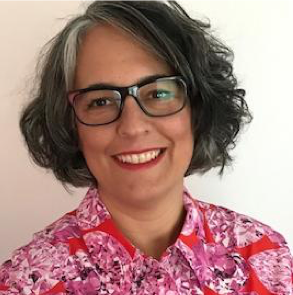
Andrea Ballestero
(Associate Professor of Anthropology and Director of the Ethnography Studio, Rice
University)
“A future history of water, or, how to wonder with techno-legal devices?”
*****
February 25 (6:00 - 7:30 pm, Farrish Hall, Kiva Room)
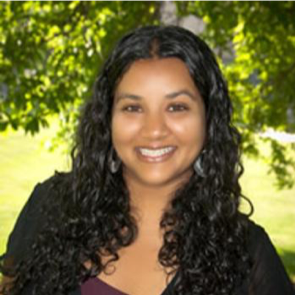
Subini Annamma
(Associate Professor of Education, Stanford University)
“Transformative Praxis: Using Dis/abilities Critical Race Theory to Disrupt the School-Prison
Nexus”
co-sponsoring with WGSS and College of Education
*****
March 25 CANCELLED
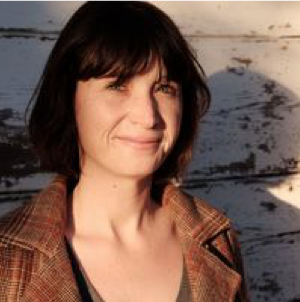
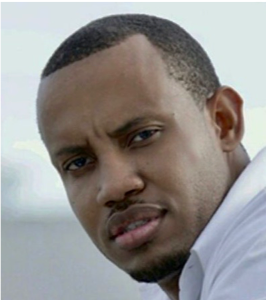
Devin Flaherty
(Assistant Professor of Anthropology, University of Texas - San Antonio)
“Disregard and Disaster:
Reflections on Aging in St. Croix (US Virgin Islands), Pre- and Post-Hurricane Maria”
PLUS documentary film screening and discussion (6-8 pm, Honors College Commons)
“The Unbreakable Virgin Islanders”
with Peter Bailey (filmmaker/ journalist from Virgin Islands)
co-sponsored by African American Studies, the Center for Public History, the Honors
College, and the Media and the Moving Image Initiative
*****
March 27 CANCELLED

Steph Grohmann
(Leverhulme Early Career Fellow, Centre for Homelessness and Inclusion Health, University
of Edinburgh [Scotland], & Research Affiliate, School of Anthropology and Museum Ethnography, University of
Oxford)
“The Ethics of Space: Homelessness and Squatting in Urban England”
(book presentation)
*****
March 31 CANCELLED
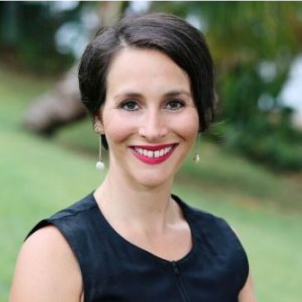
Vanessa Díaz
(Assistant Professor of Chicana/o and Latina/o Studies, Loyola Marymount University)
The Latino Paparazzi of Los Angeles:
Life, Death, and Labor in the Hollywood Industrial Complex”
co-sponsored by WGSS and School of Communications
*****
April 8 CANCELLED
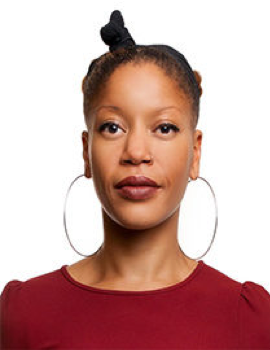
Khiara Bridges
(Professor of Law, University of California-Berkeley)
Imagining an Ethnography of Pregnant Class-Privileged Women of Color”
co-sponsored by African American Studies and WGSS
*****
April 22 CANCELLED
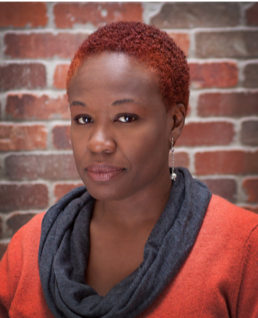
Gina Ulysse
(Professor of Anthropology & Feminist, Gender, and Sexuality Studies, Wesleyan University)
Performance event:
“An Equitable Human Assertion Rasanblaj”
co-sponsored by African American Studies, the Blaffer Art Museum, and WGSS
*****
April 29 CANCELLED
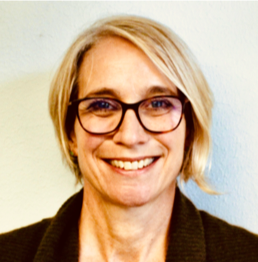
Sue Ferguson
(Associate Professor Emerita, Digital Media and Journalism -and- Youth and Children’s
Studies, Wilfrid Laurier University)
“ Play, Labor and Resistance: A Social Reproduction Discussion of the Youth Climate
Justice Strike”
co-sponsored by WGSS
2019
November 6, 2019 (11:30 – 1:00 pm, McElhinney 111)
Sonny Nordmarken
(Gender & Health Postdoctoral Fellow, Department of Sociology and the Women’s, Gender
& Sexuality Studies Program, University of Houston)
“Radiant Selves: Transgender Resistance and Implications for Health”
*****
October 23, 2019 (11:30 – 1:00 pm, McElhinney 111)
Charles A. McDonald
(Samuel W. and Goldye Marian Spain Postdoctoral Fellow, Program in Jewish Studies,
Rice University)
"Blood and Sentiment: Anthropology, Race, and Spain’s Sephardic Citizenship Law"
co-sponsored by the Jewish Studies Program, the Arab-American Educational Foundation
Chair in Modern Arab History, and the Middle Eastern Studies Program
*****
October 2, 2019 (12:00 - 1:30 pm, McElhinney Hall 232)
Joshua Price
(Professor and Chair of Sociology, State University of New York - Binghamton)
“Paradoxes of Punishment: Racialized Violence in the US Carceral Regime ”
*****
2018-2019
April 15, 2019 (4:00 - 5.20 pm, in the Honors Commons, 212 M.D. Anderson Library)
Roberto E. Barrios
(Associate Professor of Anthropology, Southern Illinois University - Carbondale)
“The Cacophony of Disaster: Interpreting Houston’s Many Voices in Harvey’s Aftermath”
co-sponsored by the Center for Public History and the Honors College
*****
March 27, 2019 (11:30-1:00, McElhinney 111)
Maria Kromidas
(Associate Professor of Anthropology, William Paterson University)
“Mothering and the Racialized Production of (Child, School & Property) Value in New
York City”
co-sponsored by the Women’s, Gender & Sexuality Studies Program
*****
March 6, 2019 (11:30-1:00, McElhinney 111)
Rosalynn A. Vega
(Assistant Professor of Medical Anthropology, University of Texas Rio Grande Valley)
“‘Pushing’ Through the Politics of Difference: How Race, Class, and Gender Hierarchies Shape How We are Born”
*****
February 4, 2019 (12:00-1:00, McElhinney 116)
Rosemary Joyce
(Professor, Anthropology, University of California, Berkeley)
“Gender in Prehispanic Mesoamerica”
co-sponsored by the Archaeological Institute of America - Houston Society
*****
 Click image to view larger or View another photo of the conference
Click image to view larger or View another photo of the conference The Religious Studies Program at the University of Houston and the Program in Jewish Studies at Rice University organized an international, interdisciplinary, and interdenominational conference in cooperation with the Universität des Saarlandes, Saarbrücken (Germany) and the Universität Rostock (Germany) and in collaboration with the Lanier Theological Library in Houston. The theme of the conference was “ Berit, Diatheke, Foedus, Covenant, Bund ” (the word “covenant” in five different languages, including Biblical Hebrew and Greek). The conference took place on November 19-22, 2019, and convened 20 national and international scholars who explored the origins, development, and later reception of a central theological theme that permeates most parts of the Bible. This academic event was for scholars, clergy, students of religion, and all who wanted to learn more about the Bible. The conference was not on the UH campus, but at the Lanier Theological Library .
Title: “Conference in Houston November 19-22, 2019: Berit, Diatheke, Foedus, Covenant, Bund”
Dr. Roberto Barrios, in addition to his CCS seminar, also graciously conducted a Student Research Workshop in Applied Anthropology on Friday, April 12, concerning his research collaboration with three undergraduate students — two of whom are our former CCS students who worked with him as paid research assistants in Houston during the summer of 2018. The workshop re-staged a panel that they recently presented at the annual meetings of the Society for Applied Anthropology.
Title: "The Emerald City’s Hidden Facets: Exploring resilience and trauma across lines of race, class, and gender in post-Harvey Houston"
April 10, 2019 (4-6pm, Heyne 135)
Melanie J. Johnson, Ed.D. (President and CEO, Collaborative for Children) delivered a public lecture as a guest speaker for the Liberal Studies Senior Seminar on “Evil and Injustice”, taught by Luca Oliva .
Title: “Broken Babies, Broken Futures: The Early Determinants of School Failure”
Alessandro Carrera (Professor of Modern and Classical Languages, Director of the Italian Studies program, and Graduate Director of World Cultures and Literatures, University of Houston) delivered a public lecture on Wednesday, April 3, 2019, when he visited as a guest speaker for the Liberal Studies Senior Seminar on “Evil and Injustice”, taught by Luca Oliva .
Title: “Cinematic Portraits of Evil”
Stephen Klineberg (Founding Director of the Kinder Institute, Rice University) delivered a public lecture on Monday, April 1, when he visited as a guest speaker in “Harvey’s Houston,” the interdisciplinary anthropology/history course co-taught by Dr. Keith McNeal (CCS) and Dr. Kristin Wintersteen (History). Based on several decades of demographic survey research in Houston, the lecture was co-sponsored by the Center for Public History and the Honors College.
Title: “Prophetic City: Tracking Responses to Mounting Inequalities, Ethnic Transformations, and Severe Storms”
